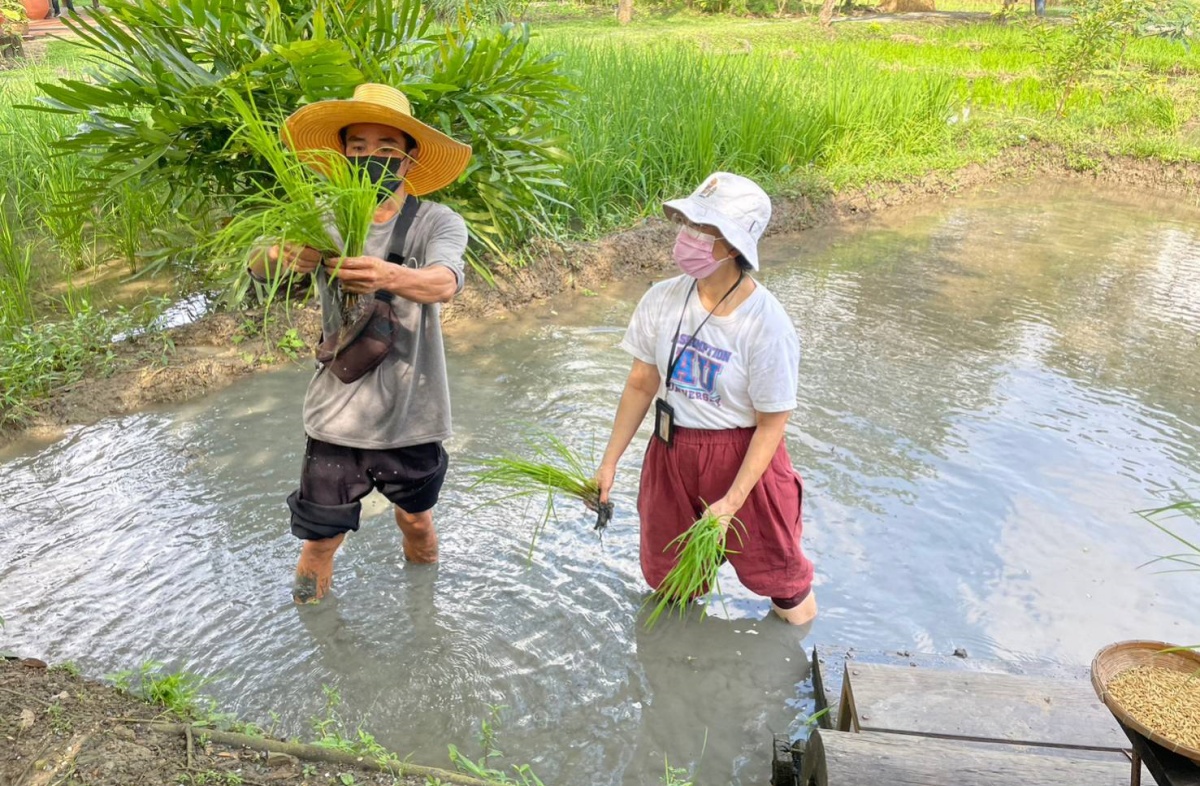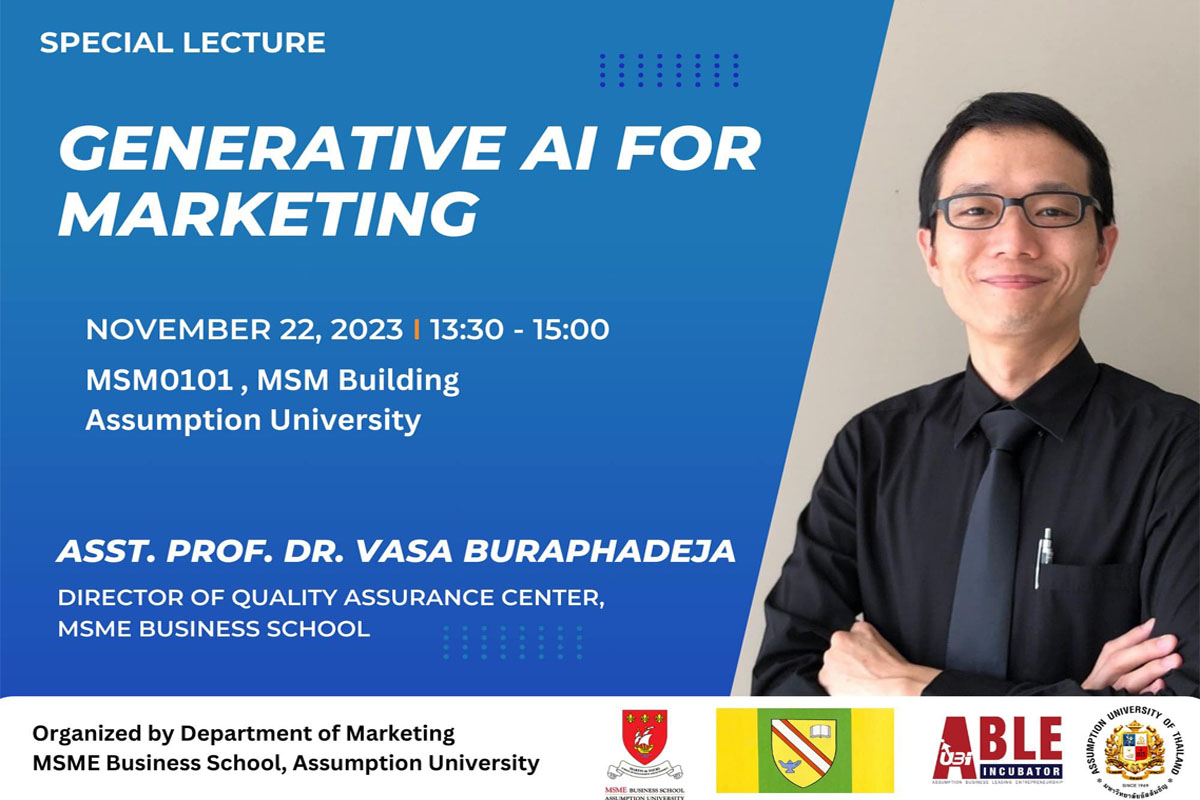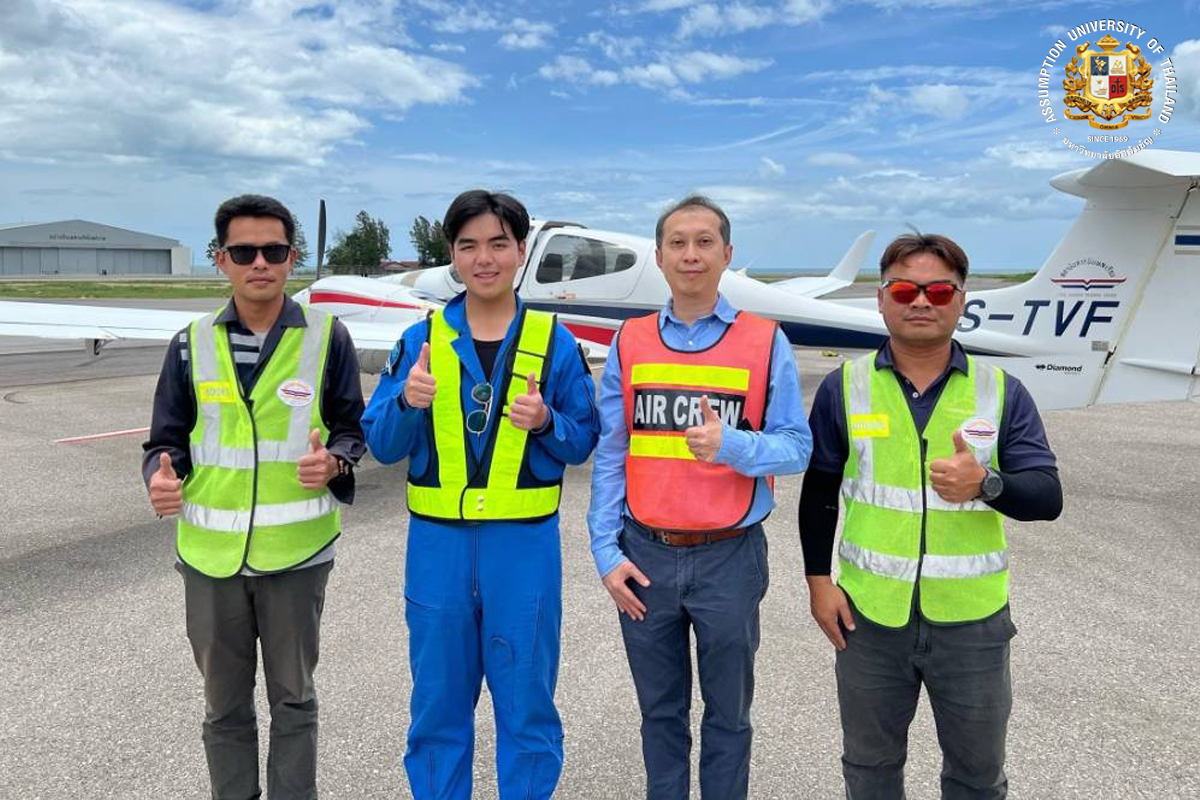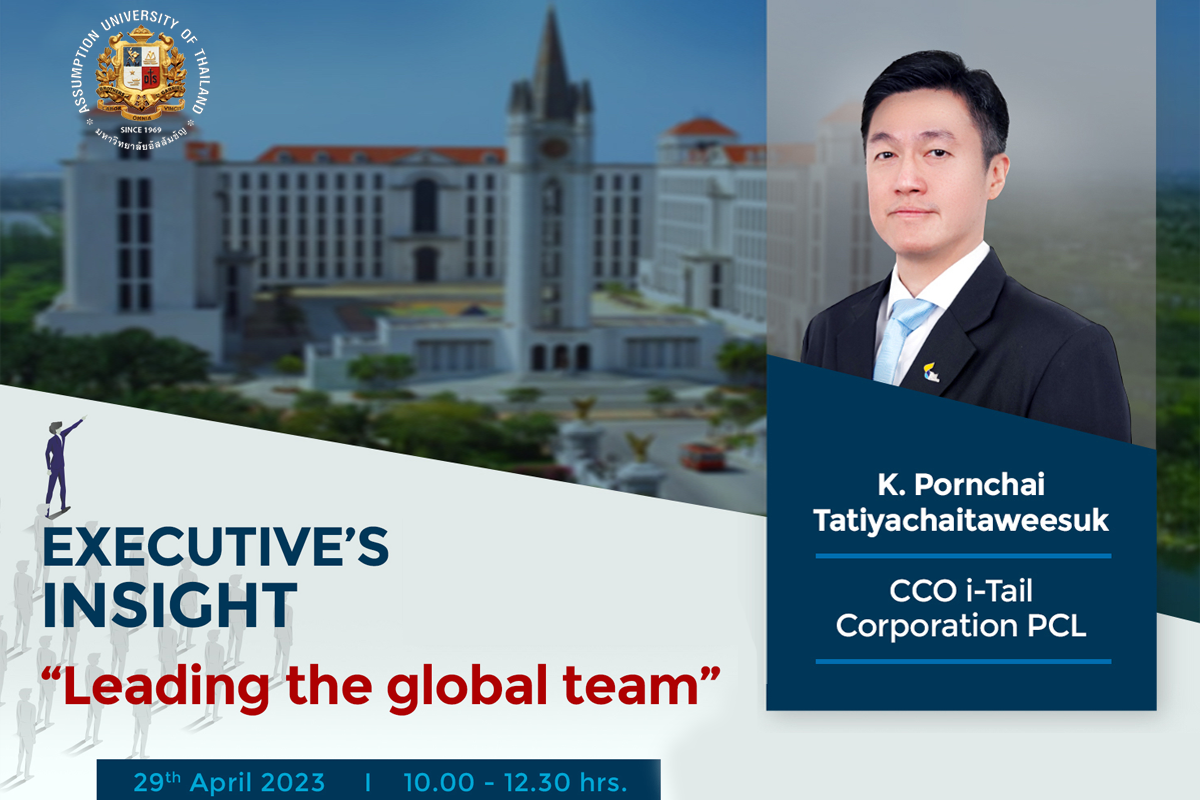WRITER: CHITTIPA NGAMKROECKJOTI

AU students who study in MBA program had visited three places. First of all, Thana Market, Nakhon Chai Sri, where locals have successfully preserved its heritage. Ringed by venerable wooden shophouses, Thana market has served as Nakhon Chaisi’s centre for at least a century and a half. The name translates roughly as “Farm Port Market” due to its proximity near a river pier. Though the area is only some 40 kilometres west of Bangkok, it remains home to many rice, fruit and flower farms that have been handed down for generations.

While the food is a major highlight at Thana, the atmospheric heritage shophouses are what make it truly special. Faded reddish-brown or off-white plank wood exteriors are punctuated by sun-faded sky-blue, lime-green and burnt-orange shutters. Every inch of a two-floor antique shop set in an especially striking old house is filled with old bronze miniatures of the Eiffel Tower, globes that count “British India” among the world’s territories, treacherous-looking dolls from the ’50s, adorable tea sets and a profusion of life-like statues of Chairman Mao.
Rebranding under the Stakeholder Capitalism and Circular Economy
Rebranding in this case is when “Suan Sampran” in Nakhon Pathom province has successfully transformed themselves from a family hospitality business into model of organic tourism that inspires learning and fosters change based on the Thai way of life and fit with international sustainable development (What is Rebranding: Step-by-Step Guide - Definition | Send Pulse and Reopening to more sustainable tourism for Thailand - Article | Amazing Thailand | BBC Story Works accessed on Tuesday, Nov. 22nd, 2022)
Stakeholder capitalism is a system in which Suan Sampran is oriented to serve the interests of all their stakeholders (Investopidia.com, 2022). Among the key stakeholders are customers, suppliers, employees, shareholders, and local communities. Suan Sampran operates a sustainable food system in which it collaborates with a network of organic farmers and other stakeholders on a fair trade basis. They need mutual share of knowledge among local farmers and hospitality system to serve circular economy.
The circular economy is a model of production and consumption, which involves sharing, leasing, reusing, repairing, refurbishing and recycling existing materials and products as long as possible. In this way, the life cycle of products is extended.
As for example of Sukjai Market is opening free to local farmers located in the nearby area substituting exchange of farming knowledge with Suan Sampran greenery development. This market created to be a learning area for organic farming and a direct link between organic farmers in the Sampran Model network and consumers. There are more than 70 shops selling rice, vegetables, fruit, and other food items, and the market is managed by a committee elected by vendors.
As a result, visitors both local and international to the village can busy themselves with activities such as dyeing fabric with herbs, making rice soap or rice scrub, making banana flour and banana bread, crafting containers from banana leaves and even toys, and much more.
In addition, Pathom Organic Village is a 12-acre farm growing herbs, fruit and vegetables which are delivered direct to the hotel restaurant and also to Pathom Organic Village as raw materials for use in the various activities and workshops that are on offer there to visitors wanting to learn about organic farming and living close to nature.
Visitors to the village can busy themselves with activities such as dyeing fabric with herbs, making rice soap or rice scrub, making banana flour and banana bread, crafting containers from banana leaves and even toys, and much more.
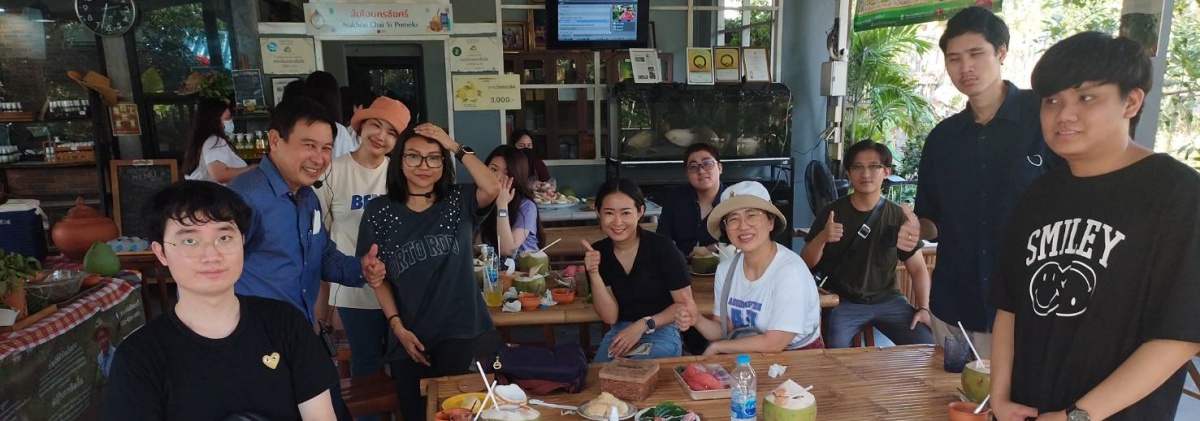
A group of 12/16 students from International Corporate Strategy, MBA program was on an educationally cultural tour to the Suan Sampran’s eco-cultural Patom Organic Village, Nakhon Pathom, on November 19, 2022.
Arranged by Dr. Chittipa Ngamkroeckjoti, course instructor along with students were treated to volumes of exciting and extraordinarily learning activities; fully exposed the traditional Thai ways of life; culturally traditional heritages and popularly known local Thai wisdoms. Such a full-day educational and eventful field trip provided the visitors with the memorable and highly impressive learning experiences.
The trip was not only pleasantly relaxing, but the involved hands-on practices of a variety of activities surely gave them the highly invaluable and treasurable lessons.
Welcoming and Orientating Session:
Upon arrival, the visiting group was given the proper orientation; being adequately briefed about the place’ backgrounds and general information; readying them for volumes of workshops & eye-opening activities in store for them.

Workshop at the Farm
Visiting this Farm, the students were thoroughly exposed to the detailed explanations, demonstrations of different preparation process of various Thai rice plantation starting from growing rice, Thin, or space out, the rice seeds to prevent crowding, Thin, or space out, the rice seeds to prevent crowding, till cut the stalks and let them dry. Later on, the visitors observed Sukjai market and enjoy having lunch including beverage there.
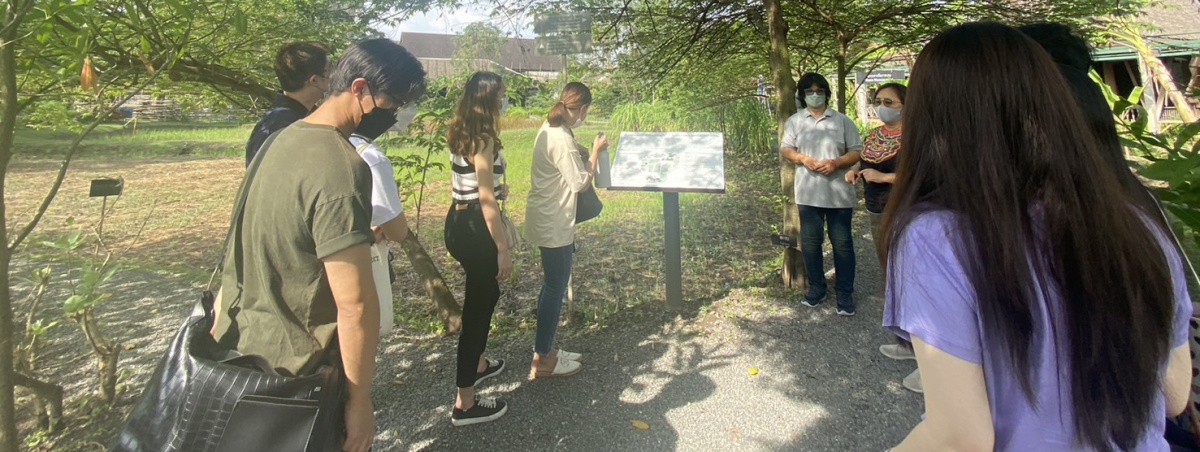
Visit to Traditionally Organic Agricultural Center
At the very last spot visited, visitors were exposed to the very basic rice farming and rice processing steps. Going through the organic rice journey, the visitors practically learned the involved basic, traditional steps of rice planting and processing:
Rice Planting:
Visiting learners, then, enjoyed replanting the young rice plants (seedlings) in the wet flooded rice or paddy fields which was the very simple, basic, traditional way of planting rice in Thailand or Asia.
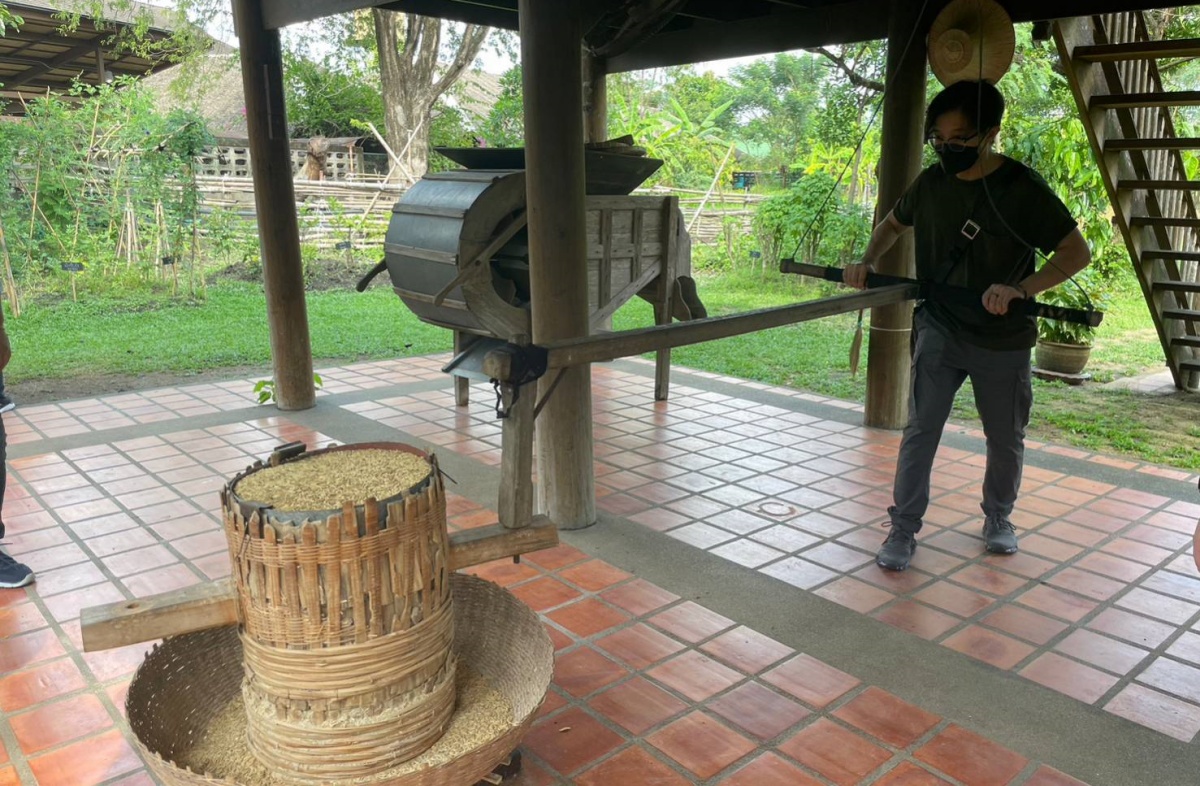
Rice Pounding
Going through the step of rice poundingม gridding or typical milling process, the greatly amused visitors joined hands-on process; taking turn in using the giant wooden mortar and pestle for pounding; separating the husks from the rice grains.
Winnowing Process
Joining the very typical separating process of getting rid of rice dusts or shredded rice husks from the rice grains, the members actually used the round flat winnowing baskets to fan or separate the clean white rice grains from the rice dusks or powders.
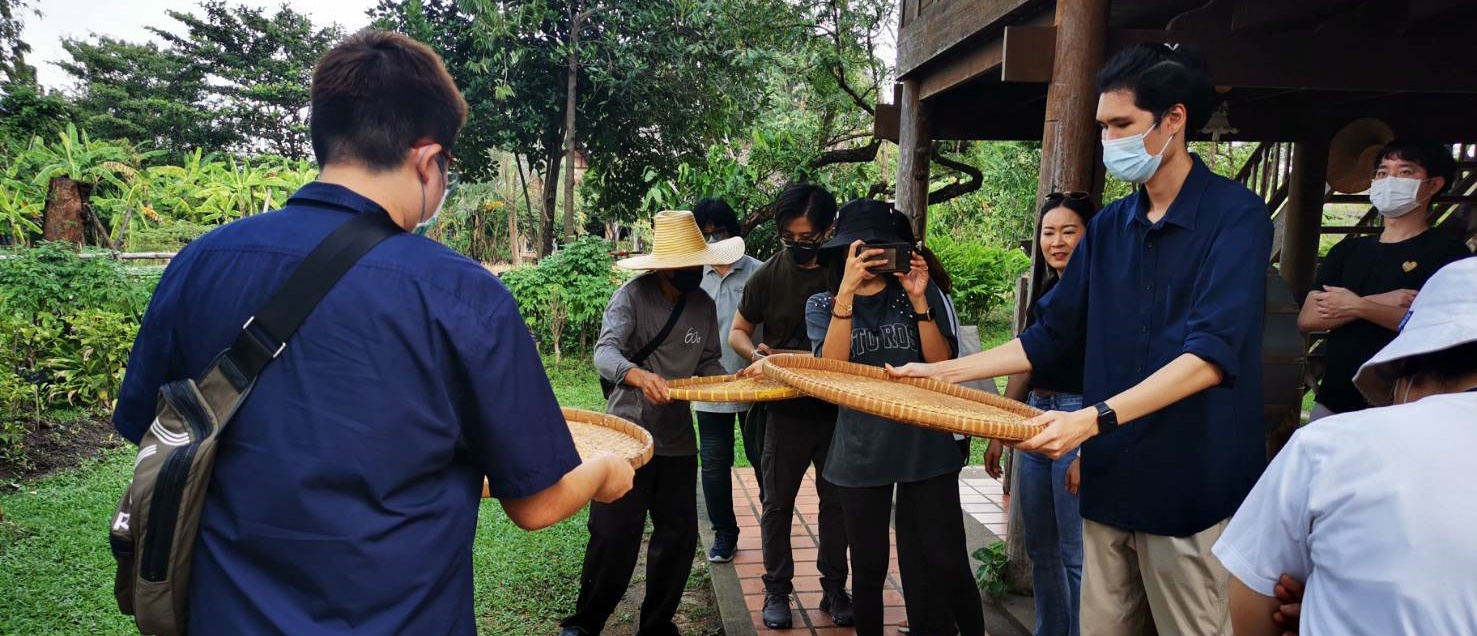
Towards the end of their fun-filled and highly educational tour, the group moved on to visit another famous river bank local market of “Don Wai” Finally, their whole day tour was indeed relaxing, memorable, exciting and very educational.
Circular Economy
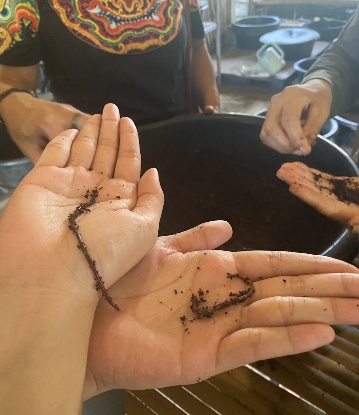
Suan Sampran buys from farmers amounting to 70% of all food purchased.
They mainly focus on organic, and no chemical used in Suan Sampran. Their aim is lower carbon footprint, and all the sources arises from locally. Moreover, their food journey plantation performs as circular economy as food waste like coconut husk, coffee grounds, lime/pineapple peel will use in gardening process with the support of vegetables and fruits for earth worm and duck feed. As a result, the organic fertilizer for fruits and vegetables is generated.
Pamelo Farm Thai Thawee
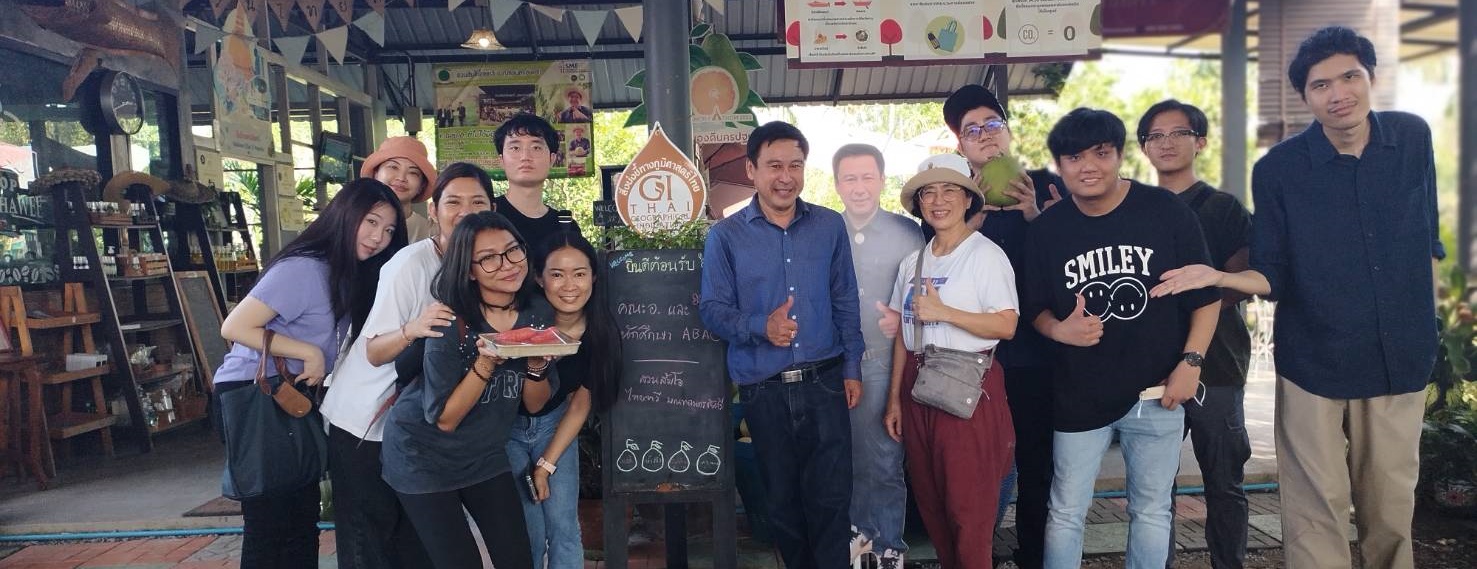
Khun Thanakrit Thaithawee, generation X has beautifully welcome all of us with fresh coconut juice, different kind of pamelo, and traditional mixed of pamelo salad (ingredients are tamarind in the form of liquid, dry shrimp, nut, chaplu leaf, and coral tree leaves). He has kindly introduced us with the background history of his workload father on his creative ideas about sustainable development in the past eighteen years.
The farm is full of natural variety of insects like Wrestling halfbeak, dragonfly, Clarias, and others reflecting how good of sustainable environment are. Khun Thanakrit himself volunteer row two rounds of boat around his farm. Before departure, two students (Mr. Thanapat Chuamuangphan and Mr. Yu Luo) has given Thank you speech to Khun Thanakrit along with our admiration towards his kindness to share his knowledge in planting pamelo to all of us.
More Information about Graduate School of Business and Advance Technology Management:
Website: www.gsb.au.edu
Facebook: https://www.facebook.com/abacgraduate/
Instagram: https://www.instagram.com/au_grad_studies/
Twitter: https://twitter.com/AbacGrad
Tel: (662) 300-4543-62 Ext.1360-61
E-mail: This email address is being protected from spambots. You need JavaScript enabled to view it.
